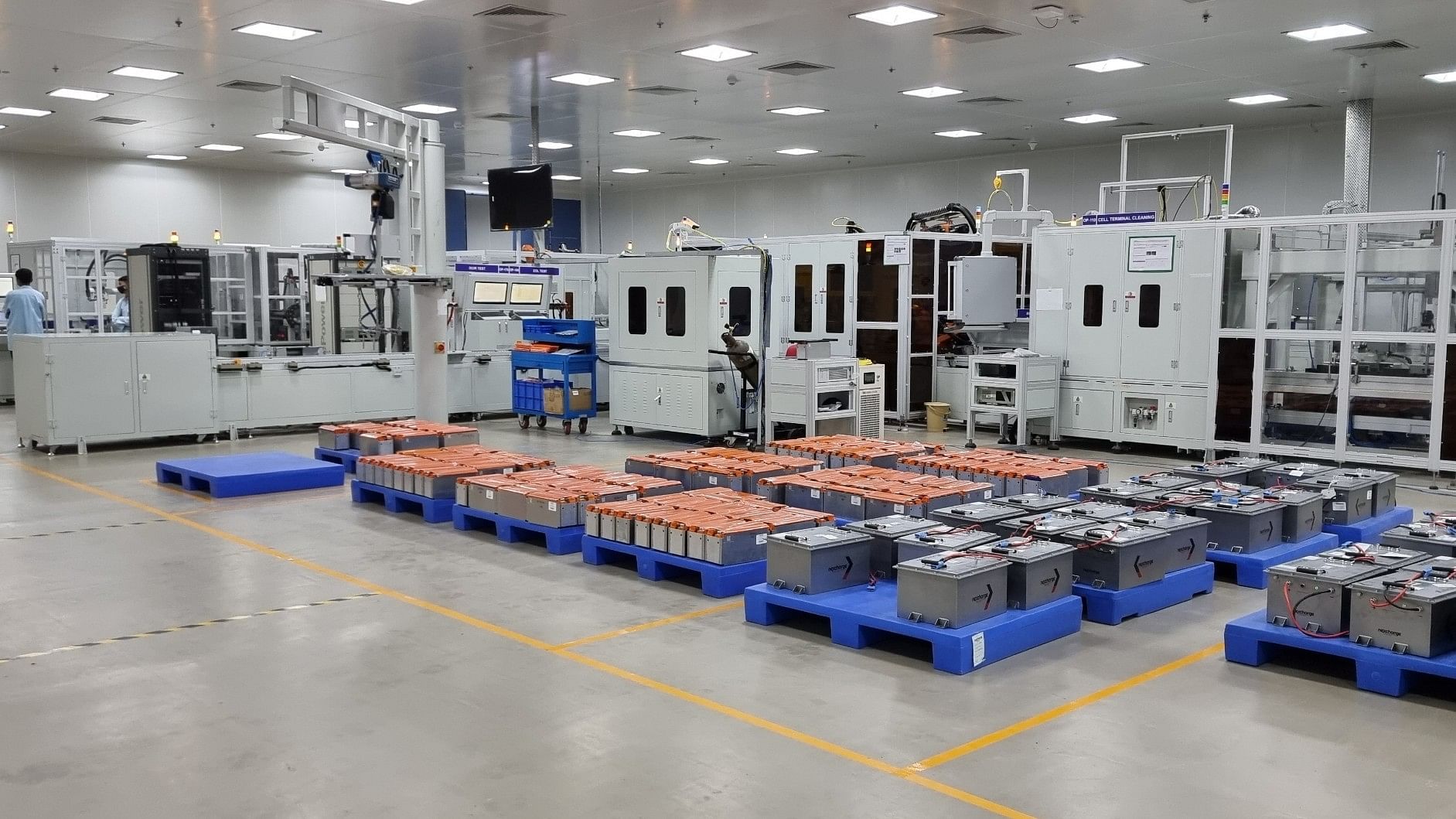
Representative Image.
Special Arrangement
Automotive and industrial battery maker Exide Energy has sought additional 40 acres of land from the Karnataka government in Devanahalli Industrial Area for the setting up the second phase of its proposed Rs 6,000-crore 12 gigawatt-hour lithium-ion cell manufacturing unit.
The company expects the first phase - a 6 gigawatt-hour plant - to be completed in 2024, with an estimated investment of Rs 4,000 crore. The second phase will evidently double the capacity.
Talking of the progress with the first phase, MB Patil, Minister for Large & Medium Industries and Infrastructure Development, Government of Karnataka said, "The work is in progress and operation is likely to commence in 2024. In addition to this, the company desires to add another 6,000 gigawatts of production capacity. The total investment for the two plants would be Rs 6,000 crore."
Exide’s managing director and chief executive officer Dr Mandar V Deo met the minister along with the department's Principal Secretary S Selva Kumar and Commissioner Gunjan Krishna among others.
The proposal for the additional land has been submitted and the company has plans of initiating the setting up of the proposed second plant in the year 2024, Patil further stated.
This comes less than a month after US-based International Battery Company (IBC) signed a memorandum of understanding with the Karnataka government to establish a recyclable lithium-ion battery manufacturing unit with an investment of Rs 8,000 crore. The facility will be located on a 100-acre plot in the Bengaluru rural district.
Meanwhile, lithium-ion cell manufacturer NSure Reliable Power Solutions is also set to launch its giga-factory near Bengaluru. The company, which has committed an investment of Rs 1,050 crore, is expected to start operations by October.
In April this year, battery technology startup Log9 Materials inaugurated the country’s first commercial cell manufacturing unit in Bengaluru.
With as many as four major manufacturing units proposed in and around Bengaluru in the past year, Karnataka is on track to become a significant hub for lithium-ion battery and cell manufacturing.
Calling the development “a step in the right direction” for pushing electric vehicle (EV) adoption, auto experts suggested that a supportive ecosystem along with incentives and the availability of the right talent are the major factors driving more investments in and around Bengaluru.
"Once the ecosystem starts to invest money and play the game out, that's when we will truly see the boom of EVs," said Som Kapoor, Partner, EY India.
"First movers have an advantage, as they will influence the ecosystem. Karnataka’s industry-friendly policies are attracting investments in the state," said Anurag Singh managing director at Primus Partners. The EV industry is going to witness explosive growth in the next 4-5 years with a lot of new capacities coming online, he added.
However, experts also highlighted that the rapidly evolving battery technologies can lead to higher technology risk for investors. "A very rapid growth in EVs may also result in the grid getting overloaded," Singh underscored.